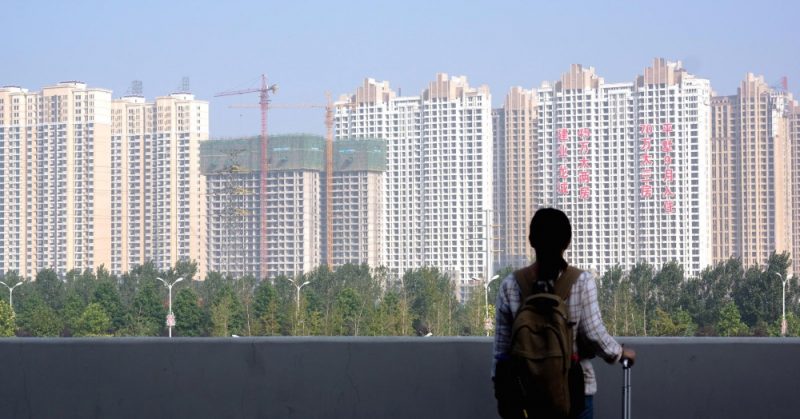Drive to diversify spearheaded by two Chinese real estate behemoths

In an effort to diversify their revenue streams and stave off any downturn in the country’s real estate market, several of China’s largest developers are shifting their focus from home construction to asset management and investment properties.
According to analysts, this change is an attempt to stabilize profits after years of lackluster real estate sales and stricter industry rules in the world’s second-largest economy. The goal is to provide investors with a better picture of earnings, which should improve firm values and overall financial health.
The two developers at the head of the campaign are China Resources Land and Longfor. Their investment assets are mature and include some of China’s largest shopping malls.
CR Land, which had 34% of its revenue come from repeat customers last year, plans to increase that number to 40% by 2025 and 50% in the long run. This will help the company achieve a healthy balance between its cash flow, profitability, and asset turnover. Its current portfolio stands at 76 properties, but by 2027 it intends to have increased that number to 117 with the opening of 16 malls in China.
The rental industry and property management services accounted for about two-thirds of Longfor’s core profit last year, up from 27% in 2022. According to a recent research note from Jefferies, Longfor’s transition to a landlord model reached a turning point last year.
Currently, Longfor manages 88 shopping centers, and this year it intends to build 14 more.
According to William Wu, an analyst at Daiwa, both Longfor and CR Land have given up part of their short-term profits in order to expand their business empires over the last decade. Now that tactic is yielding results.
On a smaller scale, there are other businesses with comparable goals. This week, Yuexiu Property announced that its rental income from commercial properties increased by 50% to nearly half a billion yuan in 2023. The company plans to gradually increase contributions from these properties for the foreseeable future.
Developers are diversifying their risks and creating viable business models in the midst of a prolonged housing crisis, according to analysts. A natural, long-term approach would be to convert to recurring income. According to economists, a bottom is still not in sight as new home prices in China declined for a seventh consecutive month in February.
According to Morningstar analyst Jeff Zhang, recurrent revenue is more stable than real estate sales, which are quite cyclical.
It also aligns with Beijing’s request for a different way of doing business in the heavily leveraged industry, according to analysts. A “new property development mode” was highlighted in this month’s annual government work report by China’s senior officials.
Gross profit margins in the shopping mall rental business are often substantially higher than those in the house development market. The investment property gross margins for CR Land and Longfor in 2023 were 70% and 76%, respectively, while the total margins for the two companies were 17% and 25%. In a recent research note, Morningstar projected that CR Land’s gross margin will reach 27% by 2028, thanks to growth in recurring income.
Bruce Pang, chief economist for Greater China at JLL, stated that, compared to developers, landlords have more transparency and less volatility in their top lines and profits.
Because many brokerages base their assessments of China’s property stocks on net asset value, this change could also be good for stock prices. Asset values will be more predictable if a company relies more on recurring revenue. This will make it easier for analysts to assess cash flow and arrive at a more realistic valuation.
While the Hang Seng Mainland Properties Index as a whole has down 14% this year, CR Land and Longfor’s stock has fallen roughly 11%. Yuexiu declines by 32%.
The greater margins in the mall rental industry are the reason why Morningstar’s Zhang thinks investors will enjoy this turn. We anticipate a more even distribution of profits between development, asset management, and property investment for developers in the future, while the former will still account for the vast majority of their revenue.

